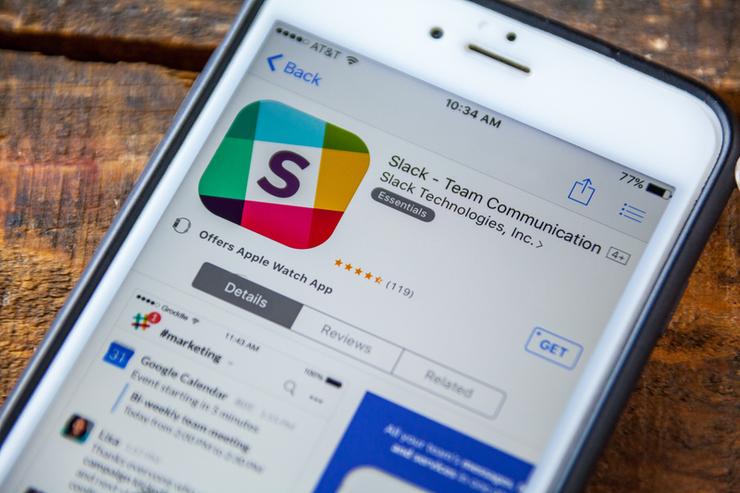
Atlassian’s Stride and HipChat team chat tools will be discontinued following a deal struck with rival Slack – a move that has “serious” implications for users who will now need to migrate to alternative platforms.
It could also erode trust in the Australian vendor, said one analyst.
As part of the agreement, Slack will pay an undisclosed fee for Atlassian’s team chat assets, while Atlassian – which also owns a range of business collaboration tools, including Jira, Confluence and Trello – will make a “small but symbolically important” equity investment in Slack, CEO Stewart Butterfield wrote in a tweet announcing the deal.
The decision comes less than a year after Atlassian launched Stride as a successor to the popular Hipchat tool. Atlassian had previously said it would continue to support Hipchat Cloud for existing users while it encouraged them to move to Stride.
It also said it that it would be “doubling down” on Hipchat Data Center, its on-premise version of the chat tool.
But Atlassian now says its Stride and Hipchat Cloud products will reach end of life on Feb. 15, 2019. Hipchat Data Center and Hipchat Server customers will receive support until the end of their license period.
Atlassian customers are angry
The deal has drawn the ire of users, with Atlassian customers raising concerns on the vendor’s community forum.
One Atlassian community member said: “This is pretty stupid. Why kill off products that many companies still use? There are some who don't want, or can't use, Slack.”
Said another: “What the hell are on-premise customers supposed to do?! We just implemented and invested in this app! We're building apps in-house for our own purposes. We have zero ability to use Cloud services of ANY type. You are offering ZERO alternatives.”
“This has serious real world implications for many Atlassian customers, particularly for those using HipChat on-prem,” said Larry Cannell, a research director at Gartner.
Slack CEO Stewart Butterfield expects that the majority of users will migrate to Slack, adding single digits of market share to its business.
Around 2,600 Atlassian employees will now start using Slack following the deal; the company has encouraged its users to do the same.
Cannell said that choosing a replacement for HipChat is just one part of the process of switching tools for companies.
“They now have to address integrations and assess what is needed versus what is used. More importantly, users become familiar with a product and end-user habits need to adjust,” said Cannell.
All of this is “unanticipated and non-productive” for user organisations: “For people who’ve been promoting the use of Hipchat, this will impact their credibility and ability to sell other changes,” he added.
Furthermore, such migration projects can be tricky. “Mapping the identity of the author of a post from the old to the new system is usually a hitch,” said Cannell.
And it could serve to erode customer trust in Atlassian. “They will now be concerned about the level of commitment the company has to less popular and future products,” he said.
Still, migrating to Slack “makes sense” for many users, according to Wayne Kurtzman, a research director at IDC.
For Atlassian, it makes their most popular and arguably most powerful products more central to overall business workflow, said Kurtzman.
“This ‘friendemy' relationship becomes a win-win scenario for customers and the companies where Hipchat and Stride users migrate to an enterprise ready, mature, collaboration platform, Atlassian can focus on making their core products more robust, and Slack grows customers and revenue and remains the hub of the enterprise flow of work.”
Stride launched into highly competitive market
Stride was announced less than a year ago by Atlassian as a rival to Slack, with a promise to cut down on the “noise” of team collaboration.
In a statement, Atlassian called Stride a “bold” project. “We knew we were taking a risk by entering an already competitive real-time team communications market, but we were willing to do the hard work necessary to build a great product,” Joff Redfern, vice president of product management said in a blog post.
However the team chat market has changed “dramatically” in the months since, said Redfern, with Slack holding onto a strong position.
While Atlassian struggled to gain a foothold, Slack has added new users at a rapid pace, with eight million users as of May.
Early in 2017, it also launched a business-focused product, Enterprise Grid, aimed at deployments in larger organisations.
"Hipchat and Stride just cannot keep up with Slack’s accelerating advancements,” said Kurtzman.
Others in the market have pushed ahead, too. Most notably, Microsoft has launched its own take on team collaboration with its Teams app, which integrates tightly with its other Office 365 productivity tools.
More than 200,000 organizations are now using Teams, which is set to replace Skype for Business as the main communications client in Office 365.
It is available to the 135 million users of the Microsoft productivity suite at no extra cost; a recently-unveiled free version does not require an Office 365 account.
Cisco has also made changes to its Spark platform in recent months, rebranding it as Webex Teams, while Google has entered the market with Hangouts Chat, available as part of its G Suite portfolio.
Facebook, too, has joined the fray with its Workplace enterprise social network, and it announced the acquisition of Israeli startup Redkix this week in order to build out its messaging features.
Atlassian’s decision to discontinue Stride is testament to the highly competitive nature of the collaboration market, said Alan Lepofsky, vice president and principal analyst at Constellation Research.
“Enterprise group messaging is a competitive space, with Microsoft Teams, Google Hangouts Chat, Cisco Webex Teams and Workplace by Facebook all eating into the market that was at one time the dominion of Slack alone,” he said.
“Atlassian attempted to bring more collaboration features to their customers of Jira, Confluence, BitBucket and Trello by introducing Stride.
"While it was a very solid product, it clearly did not find the adoption they had hoped, presumably because many of Atlassian’s customers were already using Slack.”
The advantages for Atlassian
Atlassian said the Slack deal will allow it to focus on improving other areas of its business, such as expanding offerings for technical and IT team.
Both firms now plan to “deepen” the existing integrations between Slack and Atlassian’s stable of tools and craft new integrations with other products.
“Across our product portfolio, we have long shared many integrations, which hundreds of thousands of teams use every day,” said Redfern.
“Through this new partnership, both companies will lean into building better integrations together and more sharply define the modern workplace experience for companies everywhere.”
Lepofsky noted that, in order to combat the likes of big players like Microsoft and Google, smaller rivals need to “find their niche and solidify their stronghold” in the market.
“With Microsoft starting to focus more on developers (e.g. the Github acquisition) Atlassian and Slack need to fortify their position, and a solid combination to Slack and BitBucket/Confluence/Jira/Trello could do that,” he said.
(Reporting by Matthew Finnegan, Computerworld)
Join the CIO Australia group on LinkedIn. The group is open to CIOs, IT Directors, COOs, CTOs and senior IT managers.
